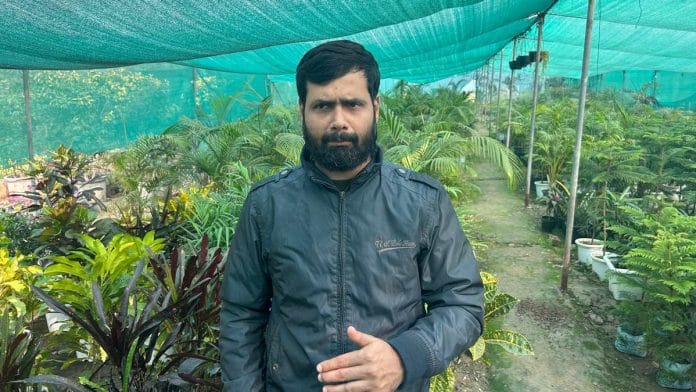Noida: Hemant Kumar, 24, has switched his crisp western formals and a heavy bag of medicine samples for a khurpa in his hand and khaad at his feet. He has left the grind of pharma sales to start his own nursery in Noida, where the Delhi-NCR middle class’s craving for indoor plants and verdant balconies is fuelling a boom in horticulture businesses.
Across Noida, nurseries are sprouting like small oases amid towering high-rises and construction sites. Unlike Delhi, Noida offers large tracts of agricultural land, pulling in aspiring nursery owners. And there’s a steady supply of customers who want to make a statement with leafy indoor plants or flower-bedecked terrace gardens, never mind the cost or if they lack a green thumb.
From tiny succulents for tabletops to sprawling jamun trees, these nurseries offer a wide range of native and exotic plants to suit any botanical whim. “I am happy with my work. People in Noida and Gurugram are well settled and can afford to buy everything new that we get in the nursery,” Kumar said. “When people have money only then they can buy plants.”
With Rs 1 lakh, a substantial amount for him at the time, Kumar sowed the seeds for his business in 2021. In Noida’s bustling Sector 92, not far from Delhi, he leased a bigha of land along the highway, setting up shop next to about a dozen other thriving nurseries. Beyond catering to NCR residents, several of these establishments also vie for government landscaping contracts and maintain a digital presence to hold their ground against big online retailers.
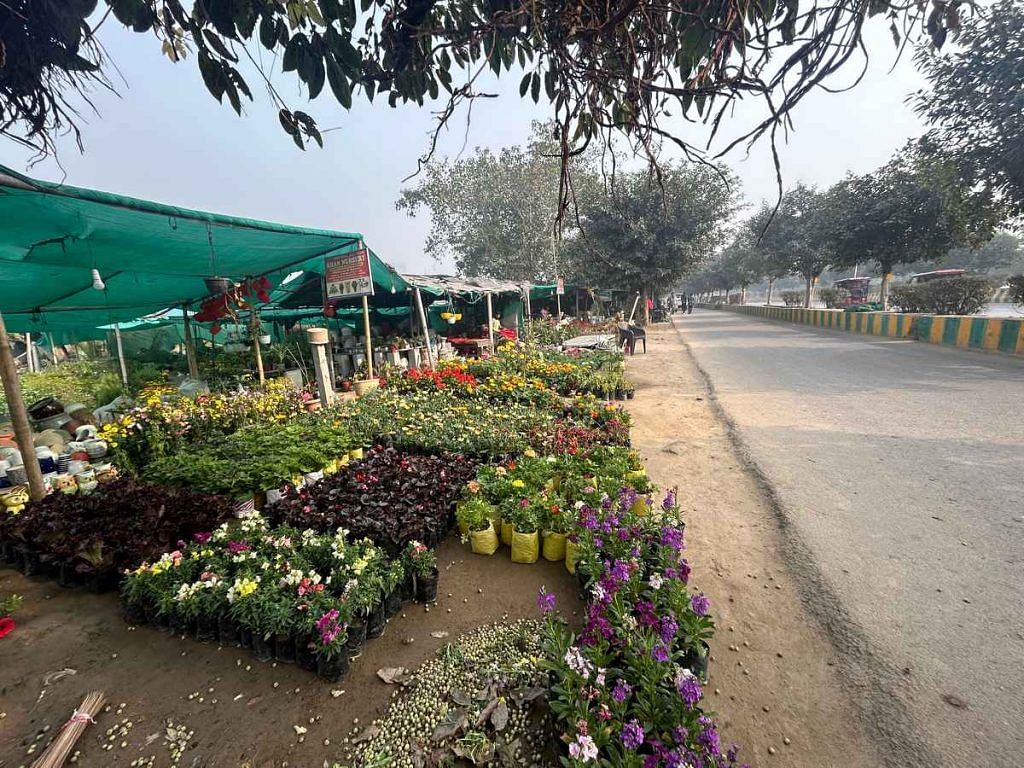
In the past few years, nursery owners like Kumar have gone high tech. They’ve launched websites selling not just a variety of plants, but also gardening tools, pots, fertilisers, decorative doodads, and even soil. Buying plants is now as simple as grocery shopping, complete with discounts, on popular sites like LazyGardener, Ugaoo, Nurserylive, and myBageecha.
Nursery owners are savvy on WhatsApp too. Through dedicated groups, they share enticing photos of plants from various angles and in different settings to tempt buyers to sign up for their next doorstep delivery. Now every time there is a new plant in the market, people instantly get to know about them through their WhatsApp.
Not long ago, the mere mention of khurpas and watering cans would bring to mind weathered malis or elderly hobbyists. But now, young entrepreneurs like Kumar are investing their time, money, and passion into running nurseries.
“My old job was exhausting. I worked long hours, took orders from others, and earned just Rs 20,000,” Kumar said, as he moved around the nursery, gently picking out dead leaves. “With this nursery, I make more money and, above all, I can choose how and when I want to work. I am my own boss.”
For Kumar, who is finally putting his botany degree to good use, life has come full circle. The son of a farmer, he says he feels closer to his father when he sees the first leaves sprout from the tiny plants he nurtures. Watching these saplings grow into lush plants, destined for rooms, balconies, and lawns, gives him a sense of satisfaction. It reminds him of his roots and the distance he has covered.
Tending to greenery, once considered a leisurely hobby, has now become an important lifestyle decision, especially for residents of Delhi-NCR.
Also Read: Ayodhya joy sweeps NCR RWAs. LED screens, Ram recitals, temple replicas, havans
Beyond backyard blooms, changing ‘perception’
Most of Kumar’s friends opted for mainstream government or private sector careers, but he can hold his own among them. His earnings haven’t just sustained him, they’ve allowed him to scale up his business. In the past two years, he’s hired two employees, sold thousands of plants, including exotic imported varieties, and even rolled out a website and home delivery service for Noida residents. “We get at least two to four orders every day,” he said.
Despite the intense competition and high overheads denting profits, Kumar remains content. “I am able to save around Rs 50,000 after all expenses,” he said. “It’s not bad.”
When you see a nursery owner importing plants from Thailand, China, and Spain, you immediately know that this person is well off
-Adnan Shams, nursery owner
Just a stone’s throw away, Adnan Shams, 32, runs one of the biggest nurseries in Sector 92. As a second-generation proprietor, he’s witnessed firsthand the big changes in the trade.
Nowadays, said Shams, nursery owners don’t just grow plants but also import and resell them at much higher prices. The demand for exotic plants has grown so much, he added, that entire shipping containers filled with them are being imported to India.
“When you see a nursery owner importing plants from Thailand, China, and Spain, you immediately know that this person is well off,” said Shams. The growing interest in exotic plants, he added, has changed the “perception” of nursery owners—they are no longer just seen as glorified gardeners.
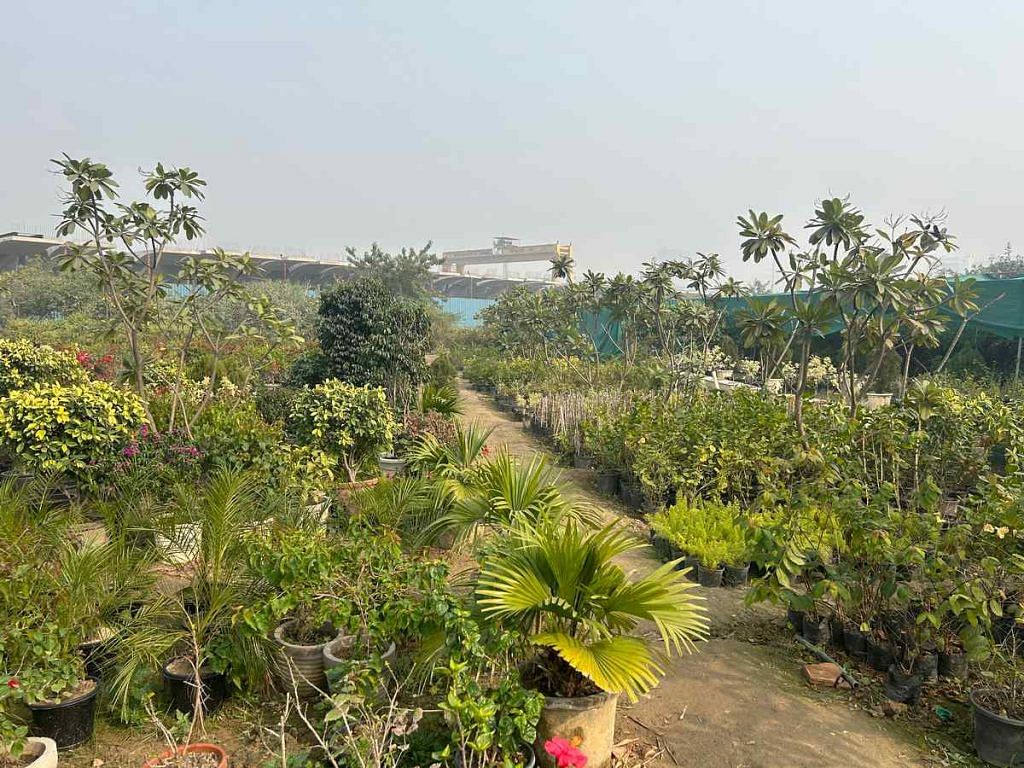
Shams started helping his father, who owned three nurseries in Delhi, 16 years ago, when most plants were native and seedlings were grown from seeds. After completing a financial management course, he completely took over the business two years ago—but in a new location and starting almost from scratch.
His father’s nurseries were demolished by the Delhi Development Authority just before the pandemic in 2019, Shams said. Two years later, they decided it was time to revive the business, but this time in Noida since it “was already well-established for nurseries.”
The new nursery, sprawling over 10 bigha (more than 6 acres), boasts the usual array of cascading spider plants, red-leafed poinsettias, succulents like aloe vera, creeping vines, and all kinds of other ornamental must-haves. But what gives it an edge over the competition is its selection of towering trees.
Sham’s wares aren’t just destined for domestic decoration. He also takes on large commissions, including from the government, to supply plants and trees in bulk for city avenues and public gardens.
“We recently took on the Central Vista project where we supplied trees, including jamun, kusum, amaltaas, pilkhan, Arjun, and sheesham,” he said, adding that a few years back this wouldn’t have been possible.
Shams said he nets an average monthly income of around Rs 2 lakh. “If you take out the cost of plants and labour, diesel charges, and rent of land, the profit is around Rs 50,000,” he added.
What caused the boom?
The demand for plants has grown so much that Noida alone is home to at least 500 nurseries, according to Shams.
Tending to greenery, once considered a leisurely hobby, has now become an important lifestyle decision, especially for residents of Delhi-NCR.
People are buying plants not just out of interest or for decor, but also for their role in mitigating the effects of pollution.
“People buy plants for three reasons—aesthetics, air purification, and companionship,” said Vinayak Garg, founder of LazyGardener, a website selling gardening products, and the author of How to Raise a Plant Baby.

Being confined to their homes during the Covid-19 pandemic inspired many to fill their living spaces with foliage— whether to plug a void or to reconnect with nature. Since the pandemic, Shams said sales went up by at least 25 per cent.
Anand Mohan Singh, a deputy director in Noida Horticulture Department, told ThePrint that he does not have precise data on hand, but acknowledged that numerous private nurseries, many registered with the city administration, have sprung in response to escalating demand.
Older generations would spend their time with plants and grow them like their own children. This generation is satisfied with how the plants look.
-Saurabh Choudhary, nursery owner
“If a person has an empty plot, they give it to nursery owners on lease and that’s how these nurseries come up. We don’t really interfere,” he said, noting that the Horticulture Department also operates three nurseries to cater to government needs.
Garg explained that one of the reasons it’s easier to set up nurseries is that less space is needed—with the growing prevalence of apartment living, smaller plants are more popular. There is also an ecosystem in place where nurseries collaborate, buying seasonal plants in bulk and sharing transportation costs. “These nurseries grow because the need for space is less. Traditionally you would need a large area to grow plants but now you [nursery owner] share a truck between a couple of nurseries and sell the plants for the next couple of months,” he said.
Sitting among his leafy companions in a hut built to provide shade to plants, Shams reflected: “Plants behave like humans, they demand care. Every man is a walking tree and every tree is a standing man.”
Many young people are now buying plants to infuse a homely feel into their rented spaces but lack basic care knowledge.
An ‘underrated’ and ‘overhyped’ plant
With its stiff, spiky leaves, the snake plant isn’t exactly a sight for sore eyes, but it became a social media star as far as plants go when Delhi-NCR’s AQI started shooting up. Because of the succulent’s much-touted air-purifying properties, demand has soared and prices have tripled.
“The price has really increased. We would sell it for Rs 50-60. Now it costs around Rs 150,” said Sanju, an employee at a nursery in Noida’s Sector 18.
Saurabh Choudhary, a 31-year-old nursery owner in Sector 92, called it an “underrated” plant, claiming that it not only absorbs more impurities in the air than its counterparts, it’s also low maintenance.
Every nursery in Noida now has a whole section of snake plants, said Choudhary: “Everyone wants it.”
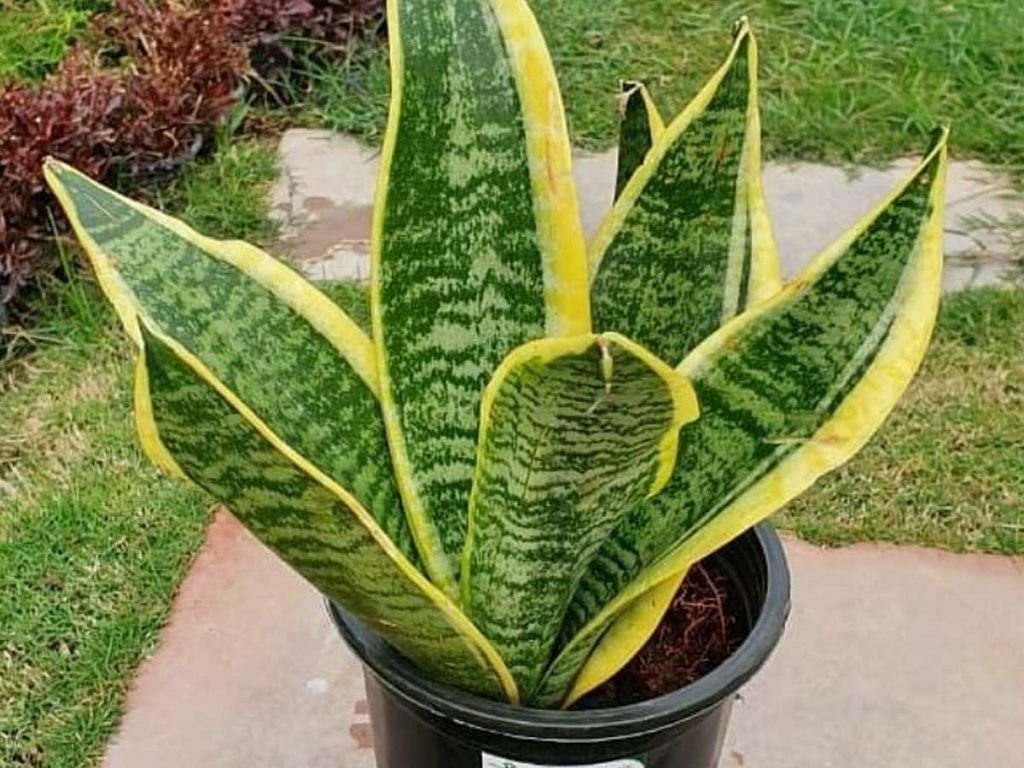
But there is a gap between the hype and the actual benefits. LazyGardener’s Vinayak Garg said that a 1989 NASA report called ‘Clean Air Study’ highlighted how certain plants released oxygen, which plant sellers later exaggerated for marketing purposes.
“The number of snake plants that you will actually need to clean the air in a room is very high,” Garg said. “You might have to fill the whole room just with plants.”
Also Read: Ashwagandha is the new gold rush for Indian farmers. King of Ayurveda is on global wishlist
Balcony envy
An engineering graduate, Saurabh Choudhary grew up watching his father, a nursery owner, take care of plants. By the time he joined the family business 12 years ago, he already knew all their names and how to best nurture them However, Choudhary observes, other ‘plant lovers’ in his age group don’t delve as deeply into these intricacies.
“Older generations would spend their time with plants and grow them like their own children. Once the plants started flowering, it would feel like an achievement,” Choudhary said. “This generation is satisfied with how the plants look.”
Decorating homes with greenery blossomed into a global trend around 2015, Garg said, driven by social media’s burgeoning focus on sustainability and nature. Instagram and other platforms were flooded with tips and ideas, inspiring young people to transform their rented spaces into lush havens. Muted walls punctuated by pops of green became the coveted ‘Bohemian’ aesthetic, where colourful pebbles, quirky pots, and decorative accents vied for attention with the plants.
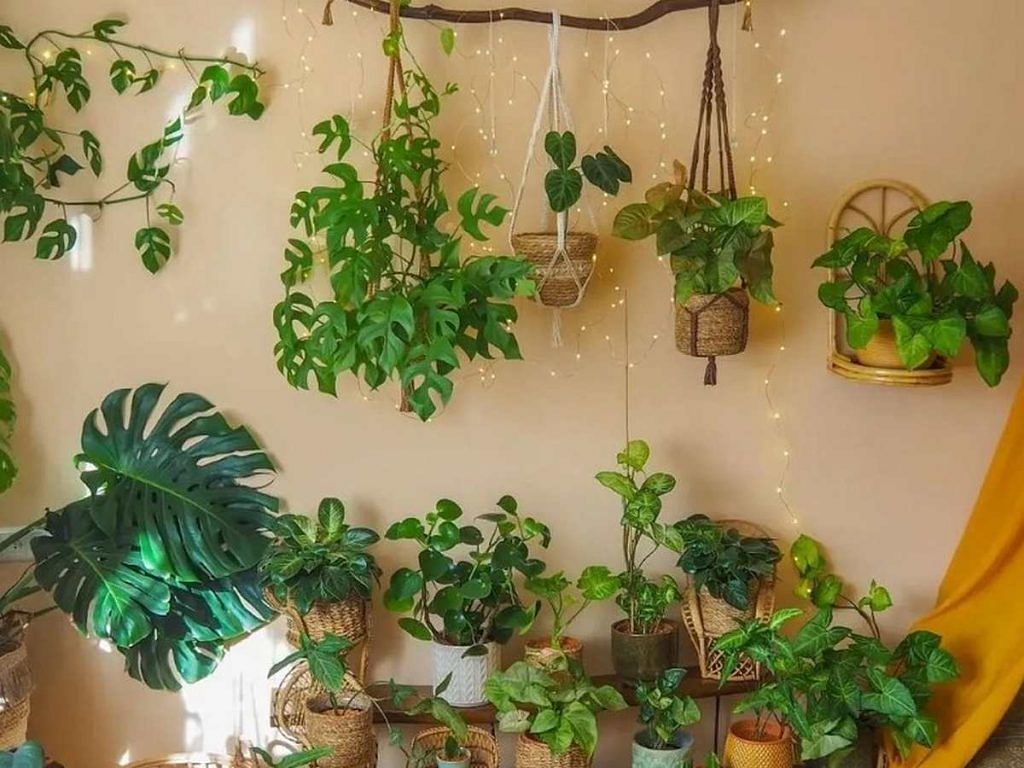
While social media has been instrumental in disseminating knowledge and boosting sales, Choudhary highlights its downside—misinformation. He observes that many young people are now buying plants to infuse a homely feel into their rented spaces but lack basic care knowledge. “Plants require hard work. We have to water them on a regular basis. They need to be monitored. Dead leaves and insects need to be removed, fertilisers are to be used,” he said.
Peer pressure is another reason for the growing desirability of plants, Choudhary pointed out. In residential communities, balconies have transformed into competitive display spaces. The greener the balcony, the greener the envy of neighbours.
“Fifty per cent of the growth in demand has increased because of people looking at each other’s balconies,” he said. “Having plants has become a status symbol. Now you see a reel on Instagram and then you must recreate it at home.”
(Edited by Asavari Singh)



